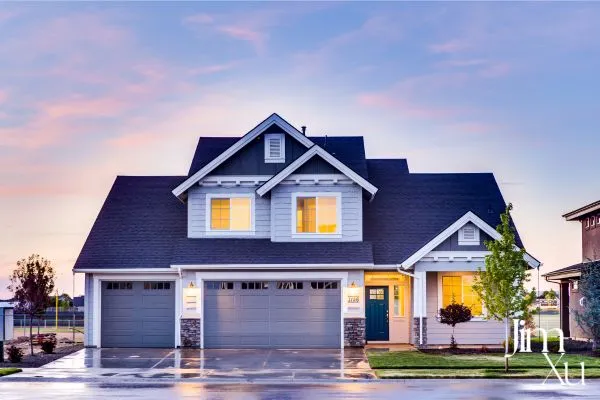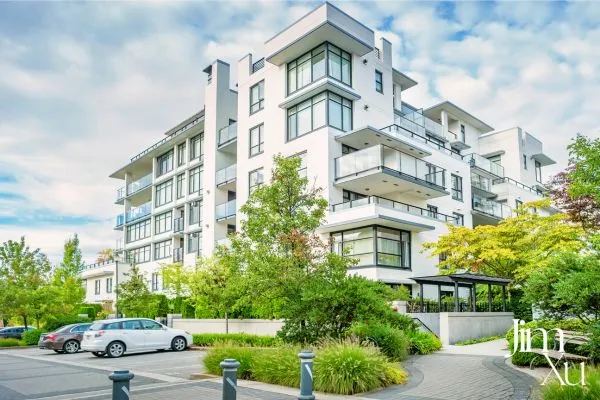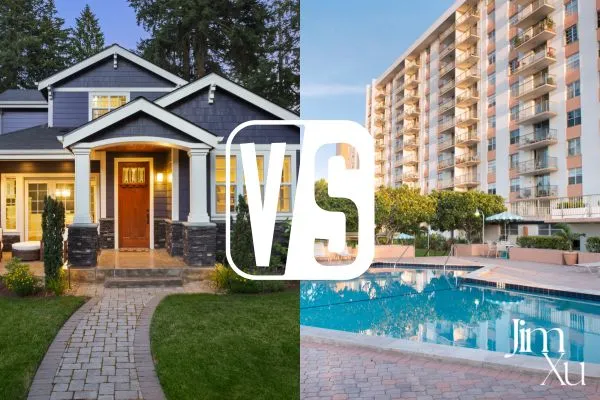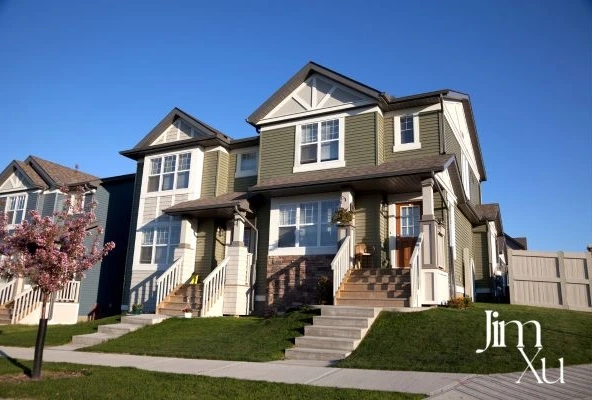Choosing between condo and house can be challenging. This decision can significantly impact your lifestyle and finances. In this article, we’ll explore the key differences, pros, and cons, and help you determine which option is best for you. When it comes to choosing a home, understanding the fundamental difference between condo and house is essential. A condo, short for condominium, is a unit within a larger building or complex where owners share common areas and amenities. On the other hand, a house is a standalone property with its own yard and facilities, offering more privacy and space. In this article we talk about Pros and cons of condo vs house.
Pros and Cons of Condos
When deciding between a condo or house, it’s essential to weigh the advantages and disadvantages of each option. Condos offer a unique set of benefits and drawbacks that may appeal to different types of homeowners. Below, we explore the pros and cons of living in a condo.
Pros of Condos
- Amenities
Access to Amenities: Many condos come with a range of shared amenities such as swimming pools, fitness centers, party rooms, and rooftop terraces. These facilities provide added value and convenience without the need for individual maintenance.
Social Opportunities: Amenities like community rooms and shared spaces encourage social interaction among residents, fostering a sense of community.
- Lower Maintenance
Exterior Upkeep: Condo owners typically do not have to worry about exterior maintenance tasks such as lawn care, snow removal, or roof repairs. This maintenance is usually managed by the homeowners association (HOA).
Time-Saving: The reduced maintenance responsibilities free up time for other activities, making condos an attractive option for busy professionals or those who prefer a low-maintenance lifestyle.
- Enhanced Security
Security Features: Condos often have enhanced security measures, including gated entrances, security cameras, and on-site security personnel. These features can provide peace of mind, especially for those living in urban areas.
Controlled Access: Many condos have secure entry systems and controlled access points, adding an extra layer of security for residents.

Read more : First-time homebuyer tips
Cons of Condos
- Homeowners Association (HOA) Fees
Monthly Fees: Condo owners are required to pay monthly HOA fees. These fees cover the cost of maintaining common areas and amenities, as well as building insurance and reserve funds for future repairs.
Additional Expenses: While these fees contribute to the upkeep of the property, they add to the overall cost of living in a condo.
- Less Privacy
Shared Walls: Condos typically have shared walls with neighboring units, which can lead to noise issues and reduced privacy. This can be a significant drawback for those who value solitude and quiet living environments.
Close Proximity: Living in close proximity to others means more interactions with neighbors, which may not suit everyone’s preference.
- HOA Restrictions
Rules and Regulations: Homeowners associations often have rules and regulations that govern what residents can and cannot do with their units. These rules can include restrictions on pet ownership, renting out the unit, or making certain modifications.
Approval Processes: Any changes or renovations within the condo may require approval from the HOA, which can be time-consuming and restrictive.
Pros and Cons of Houses
When choosing between a condo and a house, it is essential to consider the advantages and disadvantages of each option. Houses offer unique benefits and challenges that may appeal to different types of homeowners. Below, we explore the pros and cons of living in a house.
Pros of Houses
- More Space
Indoor Space: Houses typically offer more living space compared to condos. This extra space can be beneficial for families, those who work from home, or anyone who needs room for hobbies and storage.
Outdoor Space: Houses often come with private yards or gardens, providing outdoor space for recreation, gardening, or entertaining.
- Privacy
No Shared Walls: Unlike condos, houses do not share walls with neighbors, leading to greater privacy and reduced noise from adjacent properties.
Control Over Environment: With a standalone property, homeowners have more control over their immediate environment, including noise levels and use of outdoor spaces.
- Freedom and Flexibility
Customization: Homeowners have the freedom to modify and customize their property to suit their tastes and needs. This can include renovations, landscaping, and additions without needing approval from an HOA.
No HOA Restrictions: Unlike condo living, houses are not governed by homeowners associations, so there are fewer restrictions on property use and modifications.

Read more: Top neighborhoods in Vancouver
Cons of Houses
- Higher Maintenance
Upkeep: Owning a house requires more upkeep, including lawn care, exterior maintenance, and repairs. Homeowners are responsible for maintaining the entire property, which can be time-consuming and costly.
Seasonal Tasks: Tasks such as snow removal, gutter cleaning, and seasonal yard work are additional responsibilities that come with owning a house.
- Higher Costs
Purchase Price: Houses generally have higher purchase prices compared to condos. This means a larger initial investment and potentially higher mortgage payments.
Property Taxes and Insurance: Houses often come with higher property taxes and insurance costs due to the larger size and higher value of the property.
- Responsibility
Sole Responsibility: All maintenance and repairs are the homeowner’s responsibility. This includes both routine maintenance and unexpected repairs, which can be financially and logistically challenging.
Time and Effort: The time and effort required to maintain a house can be significant, particularly for larger properties or older homes.
Choosing Between Condo and House
Deciding whether to buy a condo or a house is a significant decision that depends on various factors, including lifestyle, financial situation, and long-term goals. Here’s a guide to help you choose the best option for your needs.
Lifestyle Considerations
- Urban vs Suburban Living
Condos: Often located in urban areas, condos provide easy access to city amenities such as restaurants, shops, public transportation, and entertainment options. This can be ideal for those who enjoy a vibrant city lifestyle.
Houses: Typically found in suburban or rural areas, houses offer more peace, space, and privacy. This setting can be perfect for families, pet owners, or those who prefer a quieter environment.
- Amenities and Conveniences
Condos: Many condos come with built-in amenities like gyms, swimming pools, and communal spaces. These conveniences can enhance your quality of life without the need for additional travel or membership fees.
Houses: While houses do not usually come with shared amenities, they offer the potential for private amenities like a backyard pool, garden, or home gym, customized to your preferences.
- Space and Privacy
Condos: Generally offer less living space and shared walls with neighbors, which can limit privacy. However, they are easier to maintain and manage, which can be a plus for singles, couples, or busy professionals.
Houses: Provide more living and outdoor space, ideal for families or those needing room for hobbies and gatherings. The privacy and freedom of owning a house allow for a more personalized living environment.

Financial Considerations
- Purchase Price and Affordability
Condos: Typically have a lower purchase price compared to houses, making them more affordable for first-time buyers or those looking to downsize. However, remember to factor in HOA fees.
Houses: Generally come with a higher purchase price, which might require a larger mortgage. The long-term investment potential of houses can be higher, as they often appreciate more in value.
- Maintenance Costs
Condos: Offer lower maintenance responsibilities, as the HOA handles exterior upkeep and shared amenities. This can save time and money but comes with monthly HOA fees.
Houses: Require higher maintenance costs and effort, as homeowners are responsible for all aspects of upkeep, from landscaping to structural repairs. Budgeting for unexpected repairs is essential.
- Property Taxes and Insurance
Condos: Usually have lower property taxes and insurance premiums due to their smaller size and shared property structure.
Houses: Typically incur higher property taxes and insurance costs, reflecting the larger property size and value.
Long-Term Goals
- Investment Potential
Condos: While condos can appreciate in value, their investment potential might be lower compared to houses. They are more susceptible to market fluctuations and HOA rules.
Houses: Generally offer better long-term investment potential. They tend to appreciate more over time and provide more control over modifications and improvements.
- Flexibility and Future Plans
Condos: May be more suitable for those with flexible lifestyles or shorter-term living arrangements. They are easier to rent out or sell, given their lower price point and urban locations.
Houses: Better for those planning to settle down for the long term, start a family, or need more space for future growth. They offer stability and the potential to build substantial equity.
Personal Preferences
- Lifestyle Fit
Condos: Ideal for individuals who prioritize convenience, minimal maintenance, and access to urban amenities. Suitable for singles, couples, or small families who enjoy community living.
Houses: Perfect for those who value space, privacy, and the ability to customize their living environment. Best for larger families, pet owners, or anyone needing more room.
- Financial Readiness
Condos: Attractive for those with a lower budget or who prefer predictable monthly expenses. The lower purchase price and shared maintenance responsibilities make condos a more affordable option.
Houses: Suitable for those with a higher budget and the ability to manage the costs and responsibilities of homeownership. The potential for higher long-term value and equity growth makes houses a worthwhile investment.
- Financial Considerations
When comparing condos and houses, it’s crucial to evaluate the financial aspects to determine which option is best for your budget and financial goals. Here are the key financial factors to consider:

Purchase Price
Condos: Typically, condos have a lower purchase price compared to houses. This makes them more affordable for first-time buyers or those looking to enter the real estate market with a smaller initial investment. The lower price point can also make condos an attractive option for those wanting to live in prime urban locations without breaking the bank.
Houses: Generally, houses come with a higher purchase price. This larger initial investment can be challenging for some buyers but offers potential benefits like more space and privacy. Over time, houses often appreciate more in value, which can make them a better long-term investment.
- Maintenance Costs
Condos: One of the significant advantages of owning a condo is the lower maintenance responsibility. The homeowners association (HOA) takes care of exterior upkeep, landscaping, and shared amenities, which reduces the time and effort required from the owner. However, these services come with HOA fees, which can vary significantly depending on the condo complex and the amenities offered. These fees add to your monthly expenses but provide peace of mind by covering maintenance and repair costs.
Houses: Owning a house means taking on all maintenance responsibilities, both interior and exterior. This includes lawn care, roof repairs, painting, and general upkeep. While you don’t pay HOA fees, you must budget for these maintenance tasks, which can be both time-consuming and costly. Unexpected repairs, such as fixing a leaky roof or replacing a furnace, can add to these expenses.
- Property Taxes and Insurance
Condos: Property taxes for condos are usually lower than those for houses because condos typically have less square footage and land. Additionally, insurance premiums for condos can be lower since the HOA’s master insurance policy covers the building and common areas, leaving the condo owner to insure only the interior of their unit and personal belongings.
Houses: Houses generally incur higher property taxes and insurance costs. The larger size and value of a house, along with the land it sits on, contribute to higher property taxes. Homeowners must also carry comprehensive insurance policies that cover the entire structure and any detached buildings, which can result in higher premiums.
In conclusion, the financial considerations of buying a condo versus a house involve comparing purchase prices, maintenance costs, and property taxes and insurance. Condos often have lower purchase prices and maintenance costs but include HOA fees. Houses typically cost more upfront and require more maintenance, but they offer greater long-term investment potential. Assessing these financial aspects in light of your budget and financial goals will help you make the best decision for your situation.






